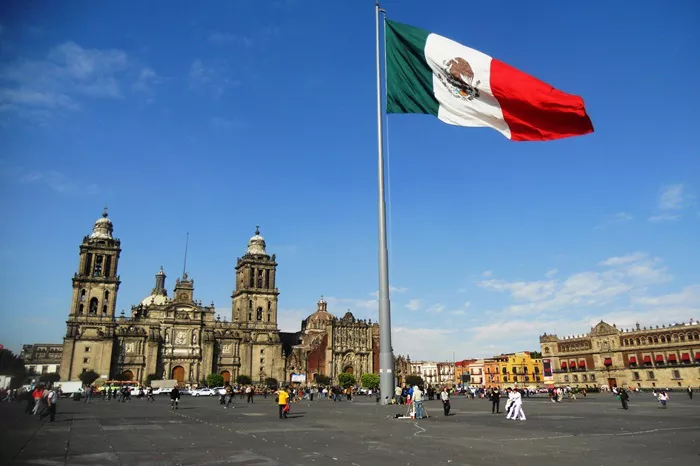Mexico is one of the most popular travel destinations for U.S. citizens, offering everything from stunning beaches to vibrant cities and rich cultural heritage. However, like any international destination, there are specific entry requirements to ensure a smooth and hassle-free visit. Here’s what U.S. citizens need to know before traveling to Mexico.
Passport Requirements
The first requirement for U.S. citizens traveling to Mexico is a valid passport. This is essential for both air and land travel. A U.S. passport must be valid for at least six months beyond your intended date of arrival in Mexico. While many countries only require a passport that is valid through the date of entry, Mexico’s policy requires that travelers have additional validity to ensure that there are no issues during their stay.
Tourist Card (FMM)
While U.S. citizens do not need a visa for short visits, they will need a Tourist Card or Forma Migratoria Múltiple (FMM) if traveling by land (such as by car or bus) and planning to stay longer than 72 hours or beyond the border zone. The FMM is a standard entry requirement for foreign nationals and is not a visa. It allows U.S. citizens to stay in Mexico for up to 180 days for tourism, business, or other non-immigrant purposes.
If you’re flying to Mexico, the FMM is typically provided by the airline as part of the check-in process. If you’re entering by land, you’ll need to obtain the card at the Mexican border or immigration checkpoint. The card must be returned when leaving Mexico, and failure to do so can result in fines or complications when exiting.
Visa Requirements
U.S. citizens are not required to obtain a visa for tourism or business visits to Mexico for stays of up to 180 days. This applies to visitors traveling for leisure, business meetings, or conferences. If you plan to stay for longer than 180 days or are traveling for work, study, or other non-tourist purposes, a visa is required. Depending on the purpose of your visit, you may need to apply for a temporary resident visa, work visa, or student visa before arrival. These can be obtained through the Mexican consulate or embassy in the U.S.
Customs and Border Regulations
When entering Mexico, it’s important to be aware of the customs regulations to avoid any issues at the border. Some items are restricted or prohibited, such as certain agricultural products, firearms, and illicit substances. Additionally, travelers are allowed to bring in a limited amount of goods without paying duties, known as the duty-free allowance. This includes:
Up to 10 cartons of cigarettes or 25 cigars
Up to 3 liters of alcohol for personal use
Merchandise not exceeding a total value of $300 USD (or $500 USD if arriving by air)
Exceeding these limits may result in taxes or confiscation of goods. It’s important to declare any items that exceed the limits, and ensure that you’re aware of specific prohibitions or restrictions on items such as cash, plants, or animal products.
Health and Safety
Before traveling to Mexico, U.S. citizens should consider a few health and safety guidelines:
Vaccinations
While there are no mandatory vaccinations for travelers from the U.S., the Centers for Disease Control and Prevention (CDC) recommends that travelers be up to date on routine vaccines, including those for hepatitis A, hepatitis B, and typhoid, especially if planning to visit rural areas or consume local food and water. It’s also a good idea to check for any recent travel advisories or outbreaks.
Travel Advisories
The U.S. Department of State regularly issues travel advisories for Mexico, detailing safety conditions based on regions. Some areas, particularly near the U.S.-Mexico border, may experience safety concerns due to criminal activity. Checking for the most recent travel advisories will help you make informed decisions about where to travel.
Medical Care
While Mexico has quality healthcare, travelers should ensure they have adequate health insurance or travel insurance that covers medical emergencies, as healthcare costs for non-residents can be expensive.
Additional Tips for a Smooth Entry
To make your entry into Mexico as smooth as possible, here are a few practical tips:
Complete the Tourist Card (FMM) Online
For convenience, you can complete the FMM online in advance. This can save time upon arrival and allow you to bypass the long queues at the immigration counter.
Ensure All Documents Are Accessible
Always keep your passport, FMM, and any other important travel documents easily accessible. You may be asked to show them during immigration processing or even when you’re leaving Mexico.
Familiarize Yourself with Local Laws and Customs
Understanding Mexico’s local laws, including those regarding alcohol consumption, drug use, and public behavior, will help you avoid any inadvertent missteps. Mexico has strict laws regarding drug use and penalties can be severe.
Currency and Payment
While credit cards are widely accepted, it’s a good idea to carry a small amount of Mexican pesos for use in more rural areas or places that do not accept cards. Exchange services are available at the airport or local banks.
Conclusion
Traveling to Mexico as a U.S. citizen is generally straightforward, with minimal documentation required for tourism or business stays under 180 days. By ensuring you have a valid passport, completing the necessary Tourist Card, and understanding the customs and health regulations, you can enjoy a seamless entry and a pleasant stay in this beautiful country. Always stay informed about current regulations and advisories to ensure a safe and enjoyable trip.

